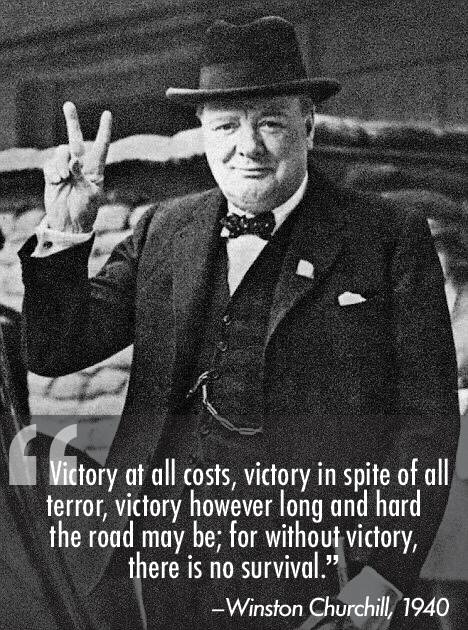Originally posted at David Horowitz’s Newsreal:
Useless college degrees are nothing new. From degrees in art history and philosophy to women’s studies and queer musicology, academia loves to come up with majors that will be absolutely zero help to graduates in the real world. Given this, it makes sense that colleges across America would get the brilliant idea to glom onto the growing fat acceptance movement. After all, taking Fat Studies might not help you get a single job, ever, but you’ll feel better about yourself, so who cares?
Schools across America are now offering Fat Studies classes. What, exactly, is the point of these classes?
Fat Studies scholars say their mission is to promote weight awareness and acceptance among populations of all types. The sociological study of obesity has been creeping into academia for over a decade, often as a subtopic of Women’s Studies or Health Sciences. But only recently has weight become a subject of study in its own right. “There would be no Fat Studies if there were no obesity epidemic,” says Esther Rothblum, a lesbian studies professor at the University of California, San Diego, and one of the earliest to research the psychology of weight bias.
The Fat Studies Reader, a compendium edited by Rothblum and her colleague, Sondra Solovay, and published to much fanfare in late 2009, is fast becoming a cornerstone of Fat Studies curricula. Its 53 contributors ask the same questions that professors now pose to their students: How is weight perceived in different countries? What do media depictions of larger sizes say about our social priorities? What if there were a “fat gene,” and what if we could test for it prenatally?
Spurred by growing national concerns about obesity, many schools now offer undergraduates a place to discuss these questions. Courses that deal with Fat Studies and body image have been taught at schools, including Oregon State University and Rutgers University. Newer still, however, is the growing interest among students and scholars who aren’t fat themselves.
The fact that the fat acceptance movement has come this far is a sad commentary in and of itself. It’s true that Hollywood promotes an unhealthy body image; it’s true that women are pressured to conform to an unrealistic, unhealthy ideal. The somewhat surprising reaction to this by some has been to promote fat pride, instead of focusing on promoting healthy, normal bodies. Femisogynists in particular have been vocal about this — that obesity can be beautiful and that fat people shouldn’t need to change to fit the narrow ideas of a patriarchal society. The health benefits to losing weight and not remaining obese, of course, is never mentioned. Is it any surprise that Fat Studies sprung out of the women’s studies movement? The most ridiculous aspect of this is that obesity is something that people can control. It isn’t like gender or race. Obesity is a lifestyle choice, for the 99% of overweight Americans who don’t have an endocrine or thyroid disorder and just choose to stuff their faces with junk food without ever being physically active.
Should someone who is obese hate his body? No, of course not. But he also doesn’t need classes telling him that he is perfect just the way he is, he doesn’t need a fat acceptance culture telling him that it’s OK to be obese. If someone wants to eat all day long without ever exercising, then that’s his prerogative. It doesn’t mean that we have to spoon-feed him propaganda about how obesity is acceptable.
We do have an obesity epidemic in the United States; more adults and children are overweight than ever. Femisogynists have been telling women over and over again that they should be fat and proud, that they don’t need to change — and any criticism of overweight people is quickly shouted down as anti-feminist and misogynistic. (Consider this mind-boggling video featured at Feministing.) I would imagine that this boils down to the ridiculous femisogynist premise that you can never criticize women (unless of course they’re conservative women like Sarah Palin). After all, being a so-called feminist means never being subjected to any standards, ever — except those imposed by other self-proclaimed feminists, of course.
More and more, we’re being told that obesity is an acceptable lifestyle choice — and there are even people, like Kate Harding, who claims that being overweight can be healthy. The reality, of course, is somewhat different.
Right now, around 35% of adults are considered obese, and about 17% of children are obese. Obesity is currently the number two cause of preventable death in the United States, behind tobacco. Some of the health consequences for obese adults include increased risks of the following: coronary heart disease, type 2 diabetes, cancer (endometrial, breast, and colon), hypertension, dyslipidemia, stroke, liver and gallbladder disease, sleep apnea and respiratory problems, osteoarthritis, gynecological problems – and that’s just the tip of the iceberg. It’s also just obesity in adults. Obesity in children causes even more health problems.
It seems pretty obvious that while overweight people should not be shamed, obesity should likewise not be celebrated or promoted. And that is unfortunately what’s happening. Being against unhealthy beauty standards doesn’t mean promoting obesity, either — just because you are against starvation, it doesn’t mean you have to be for gluttony. People don’t need to be told to lose weight to satisfy some kind of vapid Hollywood beauty standard; they need to lose weight for their own health and well-being. If they choose not to, well, then that’s their decision. But that doesn’t mean that we as a society should coddle the obese or pretend that it’s an acceptable lifestyle choice, because it isn’t. No one thinks that smoking cigarettes is an acceptable lifestyle choice anymore, but that people have the right to smoke if they so choose. We need to have a similar attitude towards fatties who can’t stop eating or get off the couch.
The other issue of contention here is the ever-present need for out-of-touch college professors to constantly find new victim groups. Hey, why not fat people too, right? It’s grievance mongering and social engineering for profit, and it’s outrageous. Consider the amount of money spent on college tuition, books, and fees. It’s typically tens of thousands of dollars. Aside from the grievance mongering, how does Fat Studies benefit students in the real world? When students graduate in Fat Studies, where are they going to find an employer who will be impressed? McDonald’s? Oh, Fat Studies, that’s great — they’ll be perfect with our overweight customers!!
All joking aside, this has to be one of the most useless programs in academia today — aside from queer musicology, of course. It’s a rip-off. Students go to college to learn and prepare themselves for a career, not to feel good about themselves and raise their self-esteem — or to be indoctrinated into ridiculous lefty political correctness. I’m sure that countless parents would be thrilled to find out that they were paying to send their children to what basically is a very, very expensive feel-good support group.











Recent Comments